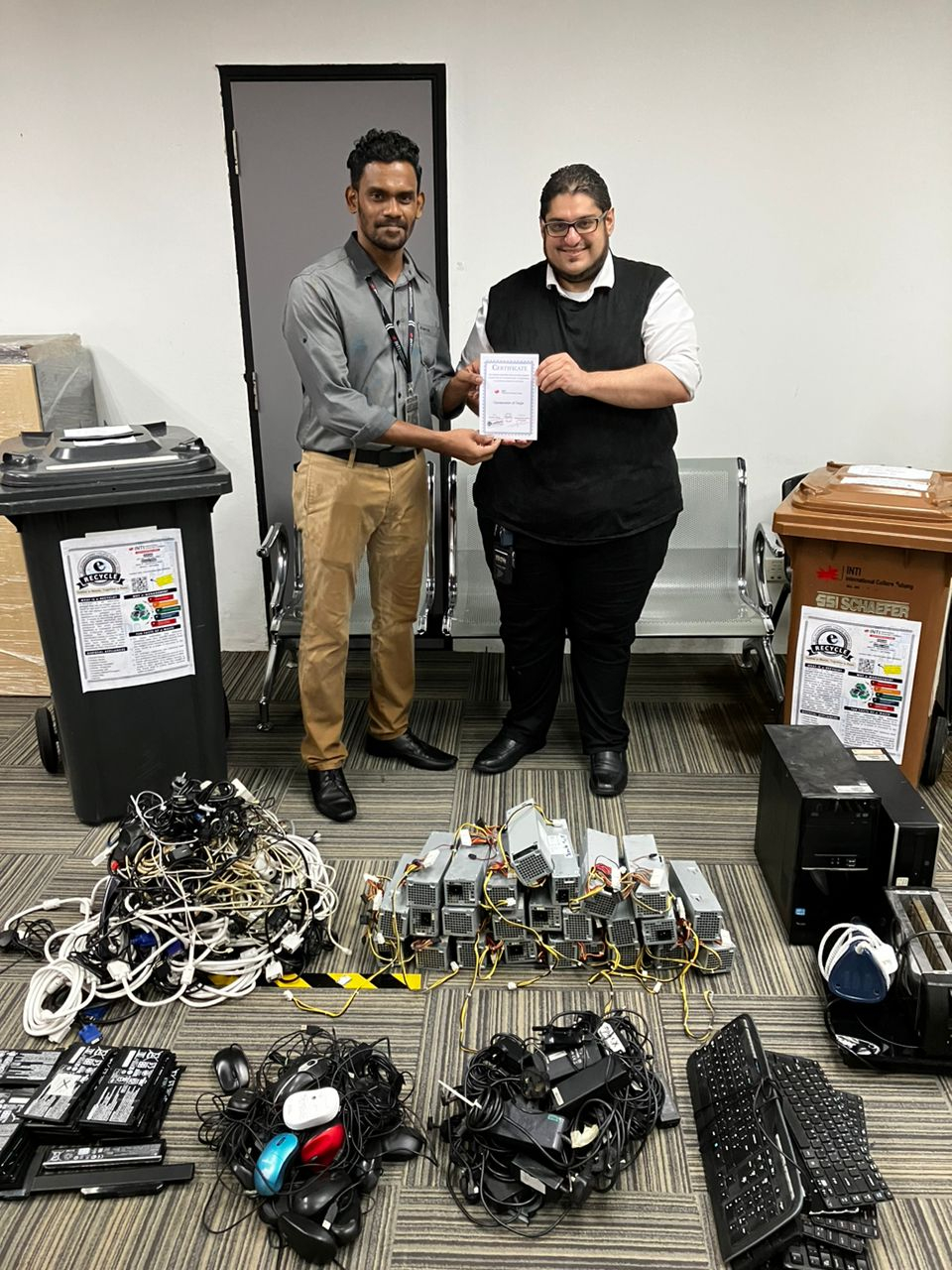The World Health Organization (WHO) reported that the world produces over 63 million tonnes of electronic waste (e-waste) annually and this is expected to rise by 37% in 2030. With people quickly swapping their electronic devices for ones with newer and improved technology, the pile of unused units continue to grow and has created a serious global e-waste problem.
Through an e-waste collection campaign e-recycle organised by INTI International College Subang from 17 October to 20 November, students and staff gathered more than 120kg of e-waste which will contribute towards eliminating environmental risks. Other benefits of minimising e-waste include conserving resources and reducing the amount of energy needed to make new products, while recycling parts within e-waste uses less energy than creating new ones.

(From left) Ganaswaran Segar, a lecturer from the School of Engineering and Computing (SEC) at INTI International College Subang, posing with ERTH (Electronic Recycling Through Heroes) founder Mohamed Tarek El-Fatatry.
Recycle bins were placed strategically on campus to allow the INTI community drop off unused laptops, printers, electric cable wires, smartphones, power banks, wired mouse, and tablets which will then be disposed of by a certified recycling centre approved by the Department of Environment (DOE) Malaysia. This initiative also built greater awareness on electronic waste disposal management systems.
Teow Hsien Loong, Head of Programme from INTI International College Subang’s School of Engineering and Computing, said they received an overwhelming response from the INTI community which was a good start to a more sustainable future.
“Most people are unaware of e-waste disposal systems or are still looking for the most efficient collection centre. I am glad that we pursued this idea further,” said Hsien Loong who is one of the committee chairs.
Hsien Loong also pointed out that toxic metals, if not discarded in an environmentally friendly manner, will have a detrimental effect on human health and the environment. “Toxic ingredients such as lead, cadmium, mercury, and nickel will seep into the earth if e-waste is disposed of recklessly,” she added.
Meanwhile, Farah Nasiha Suhaili, who is a lecturer from the School of Engineering and Computing, said she was glad that she could finally donate her old laptop to a centre that not only recycles used items.
“I changed my laptop after years of using it, but I did not want to simply discard the old one. It’s good to know that its components can be dismantled sustainably at the centre,” she said, adding that the younger generation should be able to adopt new recycling habits through the e-waste campaign.
Her colleague, Ilyia Elena Abdul Jamil, said it is important for educators to inform the community about the dangers of e-waste.
“We are still far behind in realising the importance of an e-waste management system. Most of us usually opt for recycling or repurposing,” she said.
Jarron Liew Wei Lun, a student pursuing his Diploma in Mechanical Engineering at INTI International College Subang, believes that precious metals in electronic devices can be turned into useful products.
“Giving old electronic devices a second life feels rewarding to me, it is the least I could do to protect the environment,” he said with relief.
According to Ganaswaran Segar, a lecturer from the School of Engineering and Computing who was also part of the organising committee, said that the donated items would be sent to ERTH, a certified recycling centre located in Cyberjaya which is able to remove electronic components properly and sustainably.
“We truly appreciate the effort and passion put in by the INTI community and we hope to host another e-recycle campaign soon!” he said with a smile.